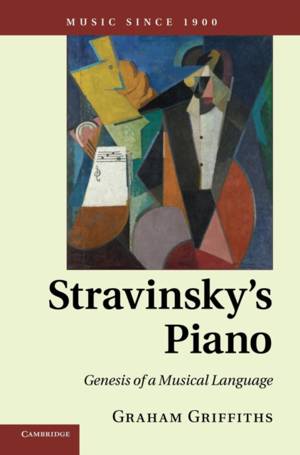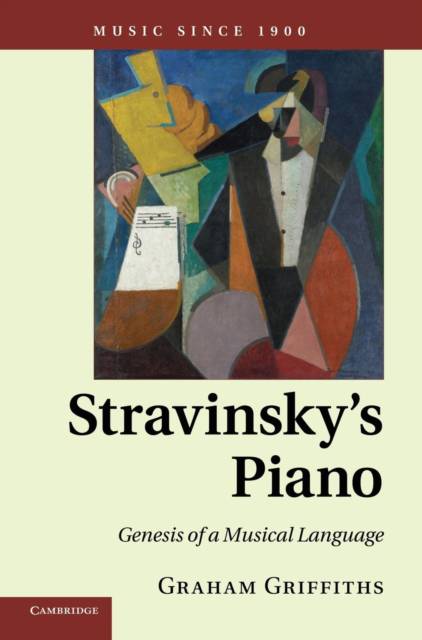
Bedankt voor het vertrouwen het afgelopen jaar! Om jou te bedanken bieden we GRATIS verzending (in België) aan op alles gedurende de hele maand januari.
- Afhalen na 1 uur in een winkel met voorraad
- In januari gratis thuislevering in België
- Ruim aanbod met 7 miljoen producten
Bedankt voor het vertrouwen het afgelopen jaar! Om jou te bedanken bieden we GRATIS verzending (in België) aan op alles gedurende de hele maand januari.
- Afhalen na 1 uur in een winkel met voorraad
- In januari gratis thuislevering in België
- Ruim aanbod met 7 miljoen producten
Zoeken
Omschrijving
Stravinsky's reinvention in the early 1920s, as both neoclassical composer and concert-pianist, is here placed at the centre of a fundamental reconsideration of his whole output - viewed from the unprecedented perspective of his relationship with the piano. Graham Griffiths assesses Stravinsky's musical upbringing in St Petersburg with emphasis on his education at the hands of two extraordinary teachers whom he later either ignored or denounced: Leokadiya Kashperova, for piano and Rimsky-Korsakov, for instrumentation. Their message, Griffiths argues, enabled Stravinsky to formulate from that intensely Russian experience an internationalist brand of neoclassicism founded upon the premises of objectivity and craft. Drawing directly on the composer's manuscripts, Griffiths addresses Stravinsky's lifelong fascination with counterpoint and with pianism's constructive processes. Stravinsky's Piano presents both of these as recurring features of the compositional attitudes that Stravinsky consistently applied to his works, whether Russian, neoclassical or serial and regardless of idiom and genre.
Specificaties
Betrokkenen
- Auteur(s):
- Uitgeverij:
Inhoud
- Aantal bladzijden:
- 354
- Taal:
- Engels
- Reeks:
Eigenschappen
- Productcode (EAN):
- 9780521191784
- Verschijningsdatum:
- 21/02/2013
- Uitvoering:
- Hardcover
- Formaat:
- Genaaid
- Afmetingen:
- 178 mm x 249 mm
- Gewicht:
- 861 g

Alleen bij Standaard Boekhandel
+ 412 punten op je klantenkaart van Standaard Boekhandel
Beoordelingen
We publiceren alleen reviews die voldoen aan de voorwaarden voor reviews. Bekijk onze voorwaarden voor reviews.









